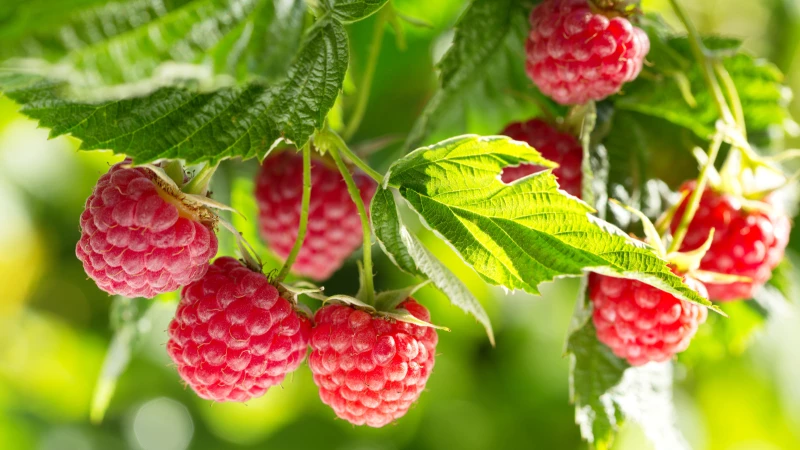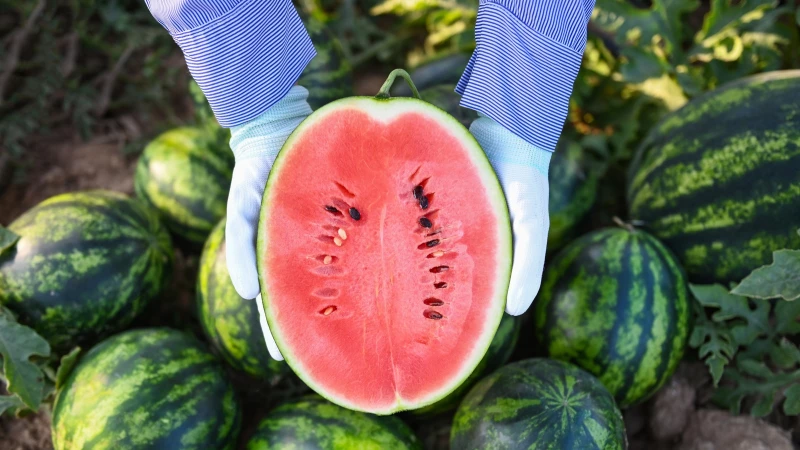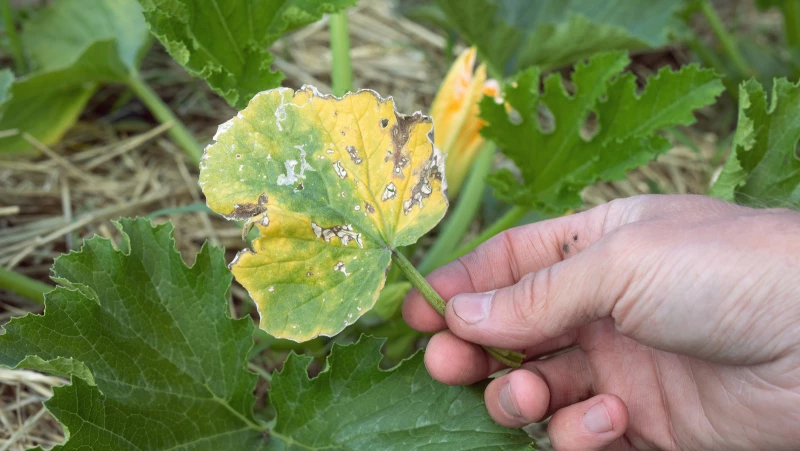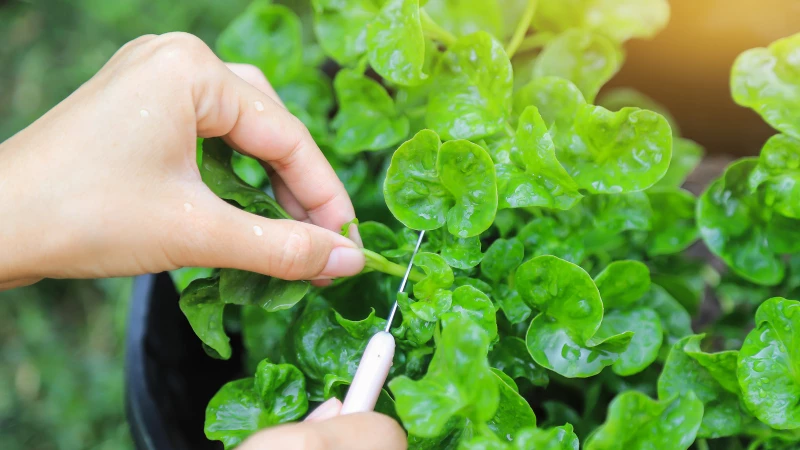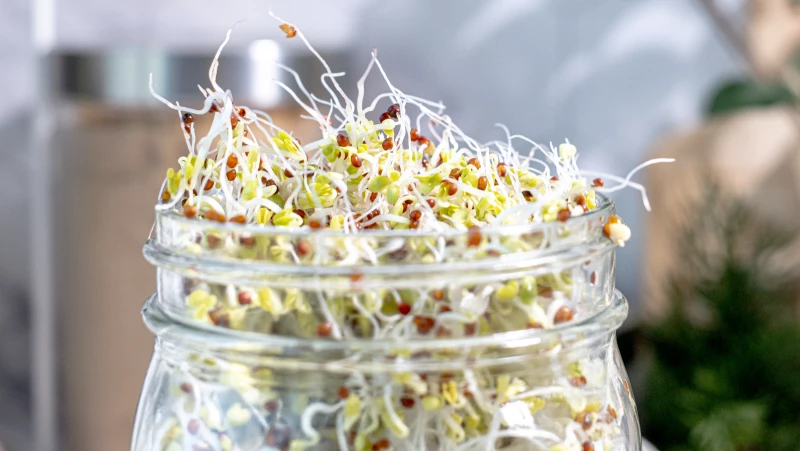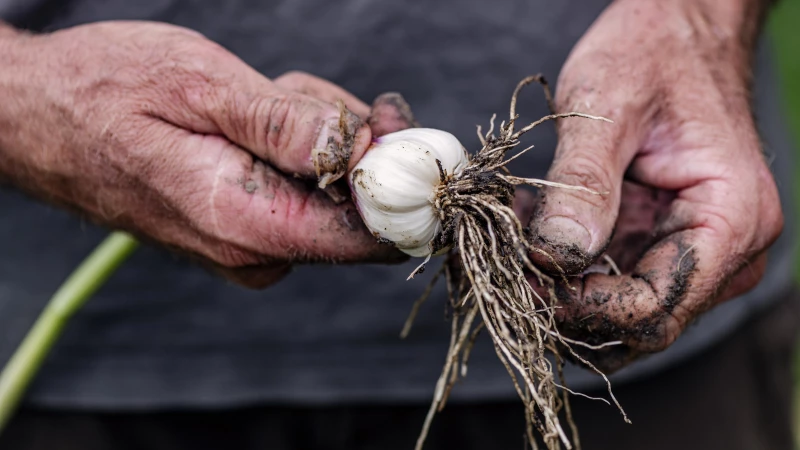Experience the joy of harvesting ripe fruit directly from your backyard and savoring it while it still carries the sun's warmth. Raspberries are a popular choice for home gardens due to their relatively easy cultivation process. However, like all plants, raspberries are susceptible to pests and diseases that can impede their growth. To protect your plants and promote healthy development, consider companion planting. By pairing your raspberry bushes with plants like garlic, chervil, and other members of the Allium family, you can benefit from natural pest repellent and antifungal properties. These herbs make excellent companion plants for raspberries, ensuring a bountiful harvest of plump and healthy berries in your garden.
Alliums between the canes
Raspberries grow on tall canes that can be supported by a trellis or other kind of staking system holding them upright, which helps keep fungus out of the bushes while allowing space for you to plant other herbs in between the canes at ground level. If you pick strong-smelling herbs like Alliums — garlic, chives, ramps, and shallots, to name a few — to plant here, Japanese beetles in the area will forgo your raspberry bushes for a less odorous meal somewhere else. Meanwhile, the Alliums will provide a fertile and healthy environment for your raspberries to thrive.
In addition to keeping the Japanese beetles away, Alliums also deter other scent-sensitive pests like rabbits and deer and can be disease-resistant if grown under proper conditions in loamy, well-drained soil. And no matter your skill as a gardener, there are Alliums for every level of expertise– from the easygoing scallion to the persnickety leek. Of course, Alliums can be a wonderful addition to any garden, with or without the benefits of companion planting, but they raise the bar as companion plants.
Raspberries and herbs
Japanese beetles are a known menace to raspberries. In truth, the insects feed on more than 300 different types of flowers, fruits, and vegetables across the garden landscape, but raspberry bushes are undoubtedly among their favorites. Grubs will hatch in the soil and feed there, whereas adults will eat away at leaves, giving the leaves a tell-tale skeletal appearance. While most of their damage is cosmetic, you still don't want Japanese beetles in your garden, and companion planting is a subversive, low-maintenance way to deter them.
In the realm of herbaceous plants, chervil, a French culinary staple, stands out as an ideal companion for raspberries. This herb, a cousin of parsley, boasts a gentle flavor with a distinct aroma reminiscent of anise, the essence of licorice. This fragrance serves as a natural repellent for Japanese beetles and other pests that typically target raspberry plants. While the tender leaves are prime for harvesting in the spring, any unused portions will continue to flourish and bloom throughout the summer, offering additional advantages to your raspberry patch.
Beyond its pest-deterring qualities shared with Alliums, chervil serves as a magnet for pollinators in your garden. The abundant nectar in chervil flowers attracts a variety of insects and birds, including honeybees, butterflies, and hummingbirds. By drawing these pollinators to the area, chervil aids in the pollination and proliferation of your raspberry plants, leading to a more bountiful harvest with reduced pest and disease issues. If you're looking to cultivate raspberries, incorporating chervil and Alliums as companion plants is a wise choice.

